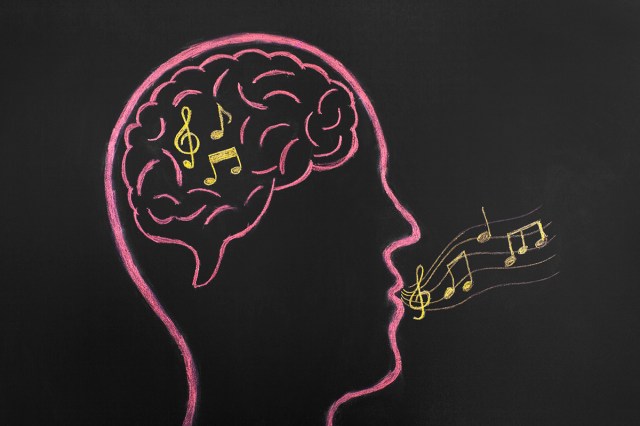
It’s a Combination of Nature and Nurture
Despite the genetic link, perfect pitch isn’t just a naturally inherited trait. Early musical training plays an important role in honing the skill, especially for children exposed to musical instruction before age 6. Research suggests the brain is particularly receptive to auditory patterns during this period, allowing young learners to encode pitch information in a way that sticks for life.
Children who start music lessons after 6 rarely develop perfect pitch, even if they’re highly talented. This is one reason why perfect pitch is so uncommon — most people don’t receive the necessary musical training at such an early age.
Interestingly, perfect pitch is not evenly distributed across cultures or languages. Studies have found higher prevalence in speakers of tonal languages, such as Mandarin or Vietnamese, compared to speakers of nontonal languages such as English.
In tonal languages, subtle pitch differences can change the meaning of a word, which means the brain may become more attuned to auditory distinctions early in life. This suggests perfect pitch may not be entirely about music — it may also reflect a heightened sensitivity to sound that’s supported by both language and environment.

It Starts in the Brain
Neurologically, perfect pitch is associated with distinct brain structures. Imaging studies have found differences in the auditory cortex of people with absolute pitch, particularly in areas responsible for processing tone and pitch memory. The brains of people with absolute pitch often show stronger connections between the auditory and memory regions, which may help people better retain and recall precise pitch information.
However, perfect pitch doesn’t necessarily mean better musicianship overall. Many skilled musicians have relative pitch — a similar but more flexible ability to recognize intervals and harmonies — but not absolute pitch. In fact, some experts argue relative pitch is more valuable for composition, improvisation, and ensemble performance because it relies on context rather than memorization of individual notes.
Perfect pitch also has its quirks. Some musicians with absolute pitch report challenges in certain situations, such as transposing music or adapting to instruments tuned differently from the standard pitch. Their brains are so finely attuned to exact frequencies that even minor deviations can throw them off.

It Requires the Perfect Combination of Factors
So why do only some people have perfect pitch? Genetics, early musical exposure, language environment, and brain wiring all play roles, but the interaction between those factors is complex. Some researchers believe a person must inherit a predisposition for heightened pitch sensitivity and then receive early, structured musical training to fully develop absolute pitch. Without either component, perfect pitch may never emerge.
Because it’s so rare, people often imagine perfect pitch as a sign of genius that sets certain musicians apart. While it can certainly enhance some aspects of musical performance, it’s not a prerequisite for musical success. In fact, some of the greatest composers in history — including Leonard Bernstein, Tchaikovsky, and Wagner — didn’t have it.
There’s also debate about whether perfect pitch can be learned later in life. Some adult learners claim to have developed absolute pitch through intensive practice or software-based training.
And while there’s some evidence that adults can improve their pitch identification skills, most studies indicate that accurate, effortless perfect pitch is extremely difficult to acquire after childhood. The brain’s auditory pathways become less malleable over time, meaning later attempts to train the brain through concerted effort rarely reach the level of natural absolute pitch.
So yes, perfect pitch is a rare but very real trait. Beyond the fascination it inspires as a musical curiosity, it offers an intriguing look at the intersection of biology, culture, and human potential, reminding us that the way we hear the world can be as unique as the music we create within it.










